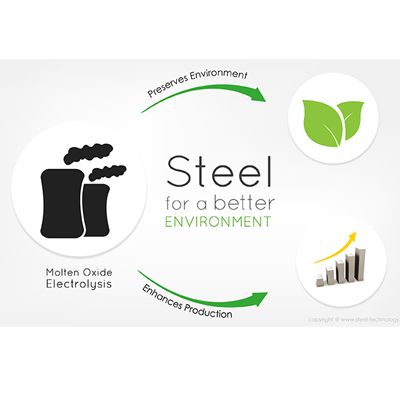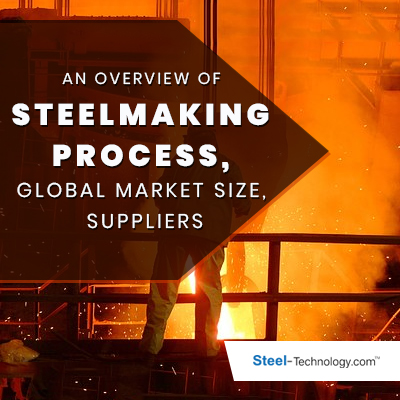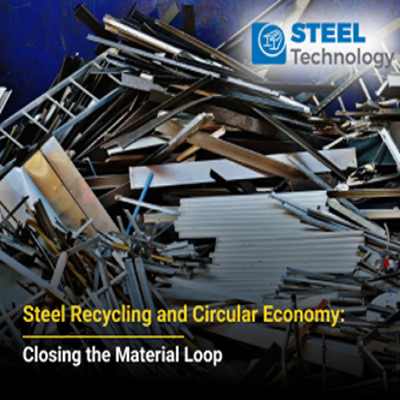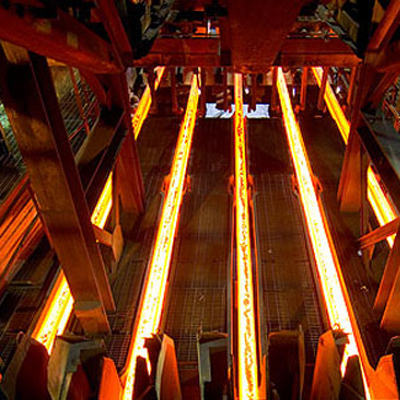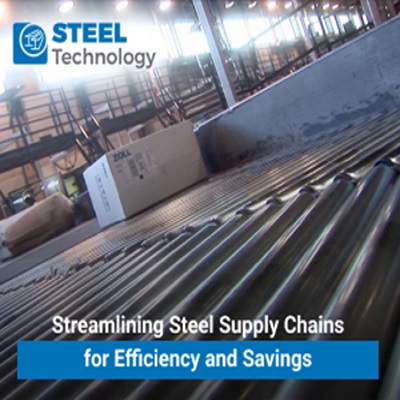Steel Tube Mills: Advancing Manufacturing's Future
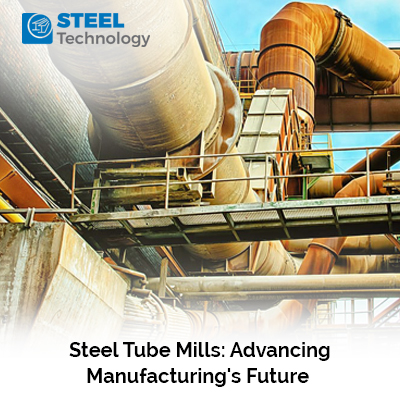
Introduction:
In the ever-evolving landscape of manufacturing, technological advancements play a pivotal role in shaping industries and propelling them toward a more efficient and sustainable future. Steel tube mills stand at the forefront of this transformation, representing a crucial component in the manufacturing sector. These mills have not only revolutionized the way steel tubes are produced but have also contributed significantly to the advancement of manufacturing as a whole. This article explores the key aspects of steel tube mills and their role in advancing the future of manufacturing.
Evolution of Steel Tube Mills:
Steel tube mills have come a long way since their inception, with continuous innovations driving the industry forward. Historically, the manufacturing of steel tubes was a labor-intensive process involving multiple steps such as casting, rolling, and welding. However, advancements in technology have streamlined these processes, leading to the development of modern steel tube mills.
The introduction of automated machinery, computer numerical control (CNC) systems, and robotics has significantly enhanced the precision, speed, and overall efficiency of steel tube production. Today, steel tube mills are equipped with state-of-the-art equipment that can produce a wide range of tube sizes and specifications with unparalleled accuracy.
High-Quality Output:
One of the primary contributions of steel tube mills to manufacturing is the production of high-quality steel tubes. These mills utilize advanced techniques to ensure the consistency of tube dimensions, wall thickness, and overall quality. The precision achieved in the manufacturing process results in steel tubes that meet stringent industry standards and customer requirements.
The high-quality output of steel tube mills has widespread implications across various industries. For instance, in the construction sector, where steel tubes are extensively used for structural purposes, the reliability and consistency provided by modern steel tube mills contribute to the safety and integrity of buildings and infrastructure.
Increased Efficiency and Productivity:
The integration of automation and advanced technologies in steel tube mills has led to a substantial increase in efficiency and productivity. Traditional manufacturing processes often involved time-consuming manual labor, leading to slower production rates and increased production costs. With the advent of automated systems, steel tube mills can operate continuously, optimizing production schedules and reducing downtime.
Additionally, the use of real-time monitoring and control systems enables operators to identify and address issues promptly, minimizing the chances of defects and ensuring a smoother production flow. The enhanced efficiency of steel tube mills not only benefits manufacturers by reducing operational costs but also contributes to meeting the growing demand for steel tubes in various industries.
Customization and Flexibility:
Modern steel tube mills offer a high degree of customization and flexibility in production. This is particularly important as industries demand tubes with specific dimensions, coatings, and properties. Advanced mills can easily adapt to produce tubes of different sizes, shapes, and materials, allowing manufacturers to meet diverse market requirements.
The ability to customize steel tubes according to precise specifications enables manufacturers to cater to a wide range of applications, from automotive and aerospace to energy and infrastructure. This adaptability positions steel tube mills as key players in addressing the evolving needs of diverse industries.
Sustainability in Manufacturing:
The advancements in steel tube mills not only contribute to efficiency and productivity but also align with the growing emphasis on sustainability in manufacturing. Sustainable practices in steel tube production include the optimization of raw material usage, energy efficiency, and waste reduction.
Modern mills are designed to minimize material waste through precise cutting and forming processes. Additionally, the integration of energy-efficient technologies and the use of recycled materials contribute to reducing the environmental impact of steel tube manufacturing. As industries worldwide prioritize sustainability, steel tube mills play a crucial role in providing eco-friendly solutions for various applications.
Cost-Effectiveness and Competitiveness:
The adoption of advanced technologies in steel tube mills has a direct impact on cost-effectiveness and competitiveness in the manufacturing sector. The streamlined production processes, reduced labor requirements, and improved material utilization contribute to lower production costs.
Competitive pricing is a key factor in the global market, and steel tube mills that can produce high-quality products at a competitive cost are better positioned to meet the demands of consumers and industries. The cost-effectiveness achieved through technological advancements ensures the sustainability and growth of steel tube manufacturing in a highly competitive landscape.
Technological Innovations in Steel Tube Mills:
The continuous evolution of technology brings forth innovations in steel tube mills, further shaping the future of manufacturing. Some notable technological advancements include the use of artificial intelligence (AI) for predictive maintenance, advanced analytics for process optimization, and the integration of smart sensors for real-time monitoring.
AI-driven predictive maintenance allows operators to anticipate and address potential issues before they cause unplanned downtime. This proactive approach enhances the reliability of steel tube mills, ensuring continuous production and minimizing disruptions.
Advanced analytics provide valuable insights into the manufacturing process, allowing for data-driven decisions to optimize production efficiency and quality. Smart sensors integrated into the machinery enable real-time monitoring of parameters such as temperature, pressure, and quality, facilitating immediate adjustments and ensuring consistent output.
Emerging Trends and Future Prospects:
Looking ahead, several emerging trends in steel tube manufacturing are poised to shape the industry's future. Additive manufacturing, commonly known as 3D printing, holds the potential to revolutionize the production of complex and customized steel tubes. The ability to create intricate geometries with reduced material waste opens up new possibilities for applications in industries such as healthcare, aerospace, and automotive.
Furthermore, the integration of Industry 4.0 principles, including the Internet of Things (IoT) and connectivity, will play a crucial role in enhancing the overall efficiency and connectivity of steel tube mills. The implementation of smart factories that leverage data analytics, cloud computing, and machine learning will lead to more agile and responsive manufacturing processes.
Global Impact and Market Dynamics:
The impact of steel tube mills extends far beyond local manufacturing sectors. The globalization of trade and the interconnected nature of industries mean that the advancements in steel tube production have a global ripple effect. As manufacturing processes become more standardized and efficient, the cost-effectiveness of steel tubes produced in one region can positively influence industries worldwide.
Moreover, the market dynamics surrounding steel tube mills are constantly evolving. The demand for steel tubes is closely tied to the performance of key industries such as construction, automotive, and energy. As these industries experience growth or transformation, the steel tube market must adapt. The flexibility and customization offered by modern steel tube mills position them to respond effectively to changes in market demands, contributing to the resilience and adaptability of the manufacturing sector as a whole.
Collaboration with Other Technologies:
Steel tube mills do not operate in isolation; they often integrate and collaborate with other cutting-edge technologies. For example, advancements in material science, such as the development of high-strength alloys and corrosion-resistant coatings, complement the capabilities of steel tube mills. The synergy between these technologies results in the production of tubes with enhanced properties, expanding their applications in critical industries.
Additionally, the integration of smart technologies like artificial intelligence and machine learning fosters an era of predictive manufacturing. Predictive analytics can foresee potential issues, prevent equipment failures, and optimize production schedules. This integration not only improves the reliability of steel tube mills but also sets the stage for a more intelligent and responsive manufacturing ecosystem.
Training and Skilled Workforce:
The advent of advanced technologies in steel tube mills necessitates a skilled workforce capable of managing and maintaining these complex systems. Training programs and education initiatives become integral to ensuring that the industry has a pool of skilled technicians, engineers, and operators. This focus on skill development not only empowers the workforce but also addresses the challenges associated with the rapid evolution of technology.
Moreover, as the industry transforms, there is a growing demand for professionals with expertise in data analytics, automation, and robotics. By investing in education and training, the steel tube manufacturing sector can foster innovation and competitiveness while providing employment opportunities for a technologically savvy workforce.
Regulatory Compliance and Sustainability Standards:
In an era of heightened environmental awareness, regulatory compliance and sustainability standards play a crucial role in shaping the future of manufacturing. Steel tube mills are subject to various regulations governing emissions, waste disposal, and energy consumption. Adhering to these standards is not only a legal requirement but also a demonstration of the industry's commitment to environmental responsibility.
The sustainability practices adopted by steel tube mills, such as the use of recycled materials and energy-efficient processes, align with the broader global efforts to reduce the carbon footprint of industries. Compliance with international sustainability standards not only enhances the industry's reputation but also opens up opportunities for partnerships and collaborations with environmentally conscious businesses.
Challenges and Potential Solutions:
While steel tube mills have made significant strides in advancing manufacturing, they also face challenges that need to be addressed for continued growth. Supply chain disruptions, fluctuations in raw material prices, and geopolitical uncertainties can impact the industry. Additionally, the transition to advanced technologies may pose initial implementation challenges, requiring careful planning and strategic investments.
Addressing these challenges involves fostering resilience through diversification of suppliers, implementing risk management strategies, and fostering international collaboration to ensure a stable supply chain. Governments and industry stakeholders can also play a crucial role in providing support through incentives for research and development, fostering innovation hubs, and creating a conducive regulatory environment.
Conclusion:
In conclusion, steel tube mills play a pivotal role in advancing manufacturing's future by embracing technological innovations, fostering sustainability, and adapting to dynamic market conditions. The constant evolution of these mills reflects the broader transformation occurring in the manufacturing sector, where efficiency, quality, and environmental consciousness are paramount.
As steel tube mills continue to integrate cutting-edge technologies, collaborate with other industries, and navigate global challenges, they become catalysts for positive change. The journey of steel tube mills is not just a story of technological advancement; it is a narrative of resilience, adaptability, and a commitment to shaping a more sustainable and efficient future for manufacturing on a global scale.





